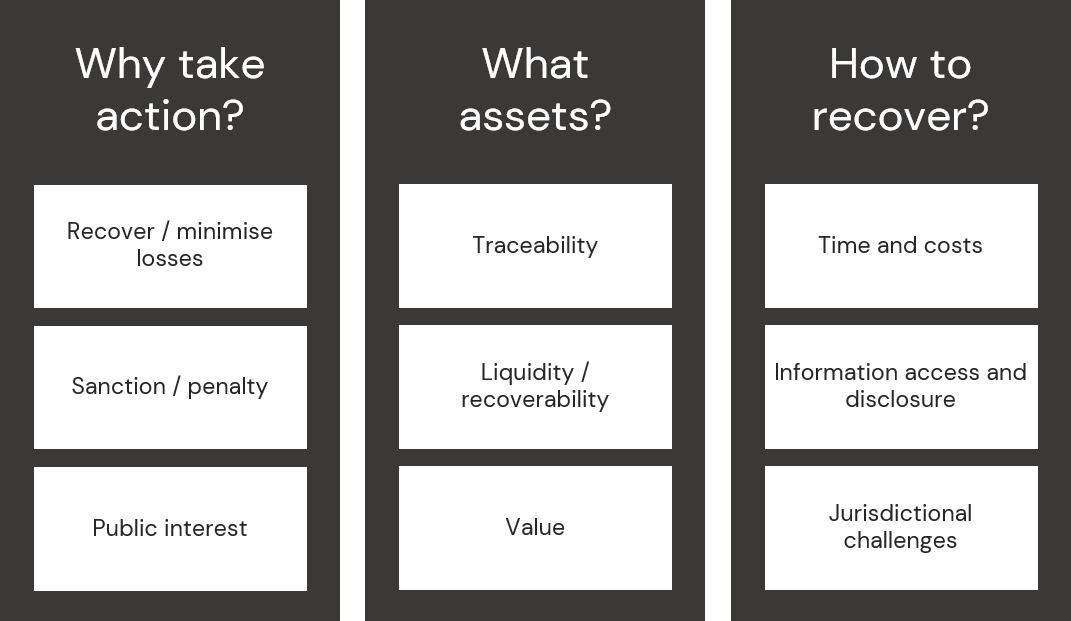I adopt a clear and strategic approach to help my clients establish as quickly as as possible the facts and advising them on the likely economic implications. At the outset, I have always found it important to set out the framework around which the work is to be undertaken and the processed involved.
The investigation and analysis should provide with an objective understanding of the situation and enable my clients to make informed decisions while being cognisant of any inherent information deficit, uncertainty and the time/costs involved in the process.


